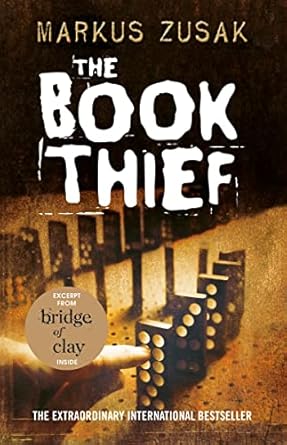
Markus Zusak
Markus Zusak: A Life Built on Stories Markus Zusak, born in 1975 in Sydney, Australia, grew up in a home where stories weren’t just entertainment—they were a way of understanding the world. His parents, both immigrants from Germany and Austria, carried with them memories of war, hardship, and survival. These stories passed down through generations, shaped the way he saw life. They weren’t just tales from the past but lessons about resilience, love, and loss. Even before he knew he wanted to be a writer, Zusak was captivated by the power of words. As a child, he was an avid reader, drawn to books that transported him to places far beyond his reality. But he wasn’t just a passive consumer of stories—he wanted to create them. The desire to write took hold of him early, though his journey to success was far from easy. Like many aspiring authors, Zusak faced rejection after rejection in his early years. He wrote, submitted manuscripts, and waited, only to receive letters turning him down. It would have been easy to quit, to accept that maybe writing wasn’t meant to be his path. But instead, he kept going. Each rejection became a lesson, each failure a stepping stone. He refined his craft, sharpened his storytelling skills, and poured more of himself into his work. His persistence eventually paid off. In the late 1990s, he published his first novels—The Underdog, Fighting Ruben Wolfe, and When Dogs Cry (also known as Getting the Girl). Though not widely known at the time, these books helped him develop his unique voice. They were raw, emotional, and deeply personal characteristics that would later define his most famous work. Then, in 2005, everything changed. The Book Thief was unlike anything he had written before. It wasn’t just another novel—it was a story that carried echoes of his family’s past, a story about war, loss, and the enduring power of words. What made it even more unique was its narrator: Death itself. Through this unusual perspective, Zusak told the story of Liesel Meminger, a young girl growing up in Nazi Germany, finding solace in stolen books and the relationships she built amid chaos. The novel resonated with readers worldwide. It wasn’t just a bestseller—it became a modern classic, translated into over 40 languages and adapted into a major motion picture. But beyond its commercial success, The Book Thief proved something deeper: stories have the power to connect us, make us feel, and remind us of our shared humanity. Even with global recognition, Zusak has remained remarkably grounded. He doesn’t write for fame or accolades—he writes because storytelling is his way of making sense of the world. His later work, including Bridge of Clay, took years to complete, as he refused to rush the process. For him, each book is a deeply personal journey that can’t be forced or manufactured. His story is one of perseverance, creativity, and an unwavering belief in the power of words. It’s a journey that reminds us all—whether we’re writers, artists, or simply dreamers—that success is rarely immediate. It takes patience, resilience, and a willingness to keep going, even when the path seems uncertain. Markus Zusak’s legacy isn’t just in the books he’s written, but in the lives, he has touched through his stories. He has shown us that words can be both weapons and refuge and that beauty can be found even in the darkest times. And perhaps most importantly, he has reminded us that every story—written or lived—has the power to change the world.
